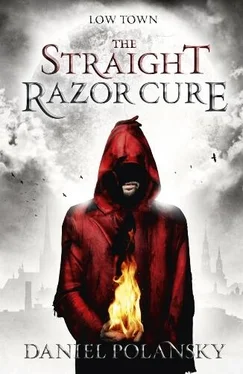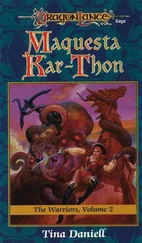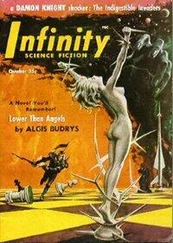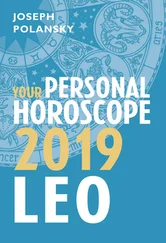Daniel Polansky - Low Town
Здесь есть возможность читать онлайн «Daniel Polansky - Low Town» весь текст электронной книги совершенно бесплатно (целиком полную версию без сокращений). В некоторых случаях можно слушать аудио, скачать через торрент в формате fb2 и присутствует краткое содержание. Жанр: Фэнтези, на английском языке. Описание произведения, (предисловие) а так же отзывы посетителей доступны на портале библиотеки ЛибКат.
- Название:Low Town
- Автор:
- Жанр:
- Год:неизвестен
- ISBN:нет данных
- Рейтинг книги:3 / 5. Голосов: 1
-
Избранное:Добавить в избранное
- Отзывы:
-
Ваша оценка:
- 60
- 1
- 2
- 3
- 4
- 5
Low Town: краткое содержание, описание и аннотация
Предлагаем к чтению аннотацию, описание, краткое содержание или предисловие (зависит от того, что написал сам автор книги «Low Town»). Если вы не нашли необходимую информацию о книге — напишите в комментариях, мы постараемся отыскать её.
Low Town — читать онлайн бесплатно полную книгу (весь текст) целиком
Ниже представлен текст книги, разбитый по страницам. Система сохранения места последней прочитанной страницы, позволяет с удобством читать онлайн бесплатно книгу «Low Town», без необходимости каждый раз заново искать на чём Вы остановились. Поставьте закладку, и сможете в любой момент перейти на страницу, на которой закончили чтение.
Интервал:
Закладка:
Wren sat at a table below, listening to Adolphus bullshit about his youth. It was nice to walk downstairs without being subject to the news of some horrible tragedy, for a change.
“It’s true-I once ate an entire side of ham in a single sitting.”
“He did, I was there. It was as impressive as it was grotesque. He reeked of pig for the next month and a half. The Dren took to calling him the Varken van de duivel, and fainted at the smell of cooked bacon.” Adolphus bellowed a laugh and even Wren cracked a smile.
The “devil pig” stood and brushed off his pants. “You want me to tell Adeline to cook up some breakfast?”
“Afraid not. I’m late as it is.”
“I’ll get my coat,” Wren said.
“No need. It’s plenty warm in here.”
His eyes slanted angrily. “I’m coming along.”
“Interestingly, you aren’t-you’re staying here and keeping Adolphus company. Though it’s nice to see you have such an active imagination.” The scowl he shot me was wasted effort-I had too many people trying to kill me to worry much over the fury of an adolescent.
The previous day’s mist had evaporated, leaving in its wake the kind of crystal clear morning that prefaces snowfall. I turned north up Pritt Street and headed toward the Old City. I’d be a few minutes late for my requested audience with Beaconfield, but I could live with that-a little rudeness is good when dealing with blue bloods, reminds them you aren’t as interested in them as they are. Halfway there it started to snow, the flurries signaling a storm soon to come. I picked up my pace and tried to plot out the next hour in my head.
Seton Gardens is a lovely little park toward the outskirts of the city, near the old walls and just north of the Asher enclave. Stone avenues lead through a wooded preserve, a dollop of verdant green in a gray landscape, far enough from the slums to keep out the riffraff. In the center is a lovely granite fountain, and next to it a curiously tailored green-an awkward addition to the topography, and one that would have no meaning to the average picnicker. On most mornings it’s virtually empty, too far from the interior to see much use.
But on rare occasions the peaceful solitude of the gardens is interrupted by the flash of blades and the piercing of silk shirts. By long tradition the park has been designated the arena in which the city’s upper crust thin out their herd, and the short stretch of manicured turf had soaked up near as much blood as the plains of Gallia. Dueling is technically illegal in the Empire, though in practice the Crown is generally happy enough to overlook the occasional murder-in this way at least, the law treats the very high and low equally.
That was the main reason I didn’t want Wren following along. The Duke of Beaconfield hadn’t called me out for a morning stroll-he’d invited me to watch him kill someone. By my count it would be his fourth this week.
I entered the park and was soon engulfed by its beech trees. A few hundred yards along a smoothly cultivated path and the city’s noise was lost in the stillness of the morning. Farther in and that quiet was broken by the low commotion of a crowd. Apparently I wasn’t to be the only audience to the proceedings.
A small group had gathered in front of the dueling grounds, twenty or thirty men-friends or acquaintances of the participants, these things aren’t exactly advertised. I took shelter beneath an outlying tree and sucked at my teeth. I was in the presence of some old names. It had been a long time since I’d needed to be familiar with the court, but my tattered memory was sufficient to recognize two earls and a marquess who used to pass Black House information. Probably still did, come to think of it.
Opposite the audience were the combatants and their coteries, separated from each other by about twenty feet of lawn. Beaconfield sat on a small bench, lounging comfortably in a multihued tunic and a long black coat. He was surrounded by a half dozen of his usual crowd, dressed less extravagantly than at the ball but, by my own aesthetic, still in attire inappropriate to the business before us. They were enjoying themselves thoroughly, cavorting for the benefit of their captain, who smirked but didn’t laugh.
Across the way the atmosphere was quite different. The Blade’s opponent was alone save his second, and the pair showed little in the way of gaiety. The duelist sat on the bench, staring off into the distance, his eyes unfocused but hard. He was more middle-aged than young, not old but too old to be involved in this kind of nonsense. His man stood next to him, the bulge of his paunch stretching his overcoat, hands frittering nervously.
I never did find out what they were fighting over. Some fracture in etiquette, the kind of nebulous bullshit the upper classes love to spill red over. I suspected it was Beaconfield’s fault-people like to display what makes them exceptional, and the Smiling Blade’s forte rested on his hip.
The duke noticed me and gave a little half wave. Did he do this so often that he could work it in as an exclamation point to our own engagement? Sick motherfucker.
Out of the corner of my eye I saw Beaconfield’s butler detach himself from the crowd. “Do you have the merchandise?” he asked, by way of greeting.
“I didn’t walk this far for my health,” I said, handing him a nondescript package containing a few ochres’ worth of dreamvine and pixie’s breath.
He slipped it into his waistband, then handed me a pouch that felt heavier than it ought to. Nobles love to throw money around, though if Mairi was right, Beaconfield didn’t have it to lose. Tucket seemed to think I was going to say something further. When he realized I wasn’t, he said, “I hope you appreciate what a privilege this is. You’ve been invited to witness an extraordinary spectacle.”
“I hate to break this to you, Tucket-but death isn’t that rare an occurrence. Nor murder, leastways not where I come from.”
He sniffed and walked back to the crowd. I rolled a smoke and watched snowflakes melt on my coat. A few minutes passed. The judge stepped to the center of the grounds and waved for the two seconds, who approached the battleground.
“I speak for Mr. Wilkes,” said the fat man, his voice steady enough not to embarrass him.
The Blade’s adjunct was not as bad as he might have been. To the best of my knowledge the code duello doesn’t require participants to curl their hair, but at least he walked out instead of sauntering. “I speak for Rojar Calabbra the Third, the Duke of Beaconfield.”
Wilkes’s second spoke again, sweating despite the cold. “Can there be no resolution between the two gentlemen? My party, for his part, is willing to make an admission that his information was gained secondhand and does not amount to an exact transcription of the conversation.”
I couldn’t entirely decipher the legalese, but that seemed like a step toward reconciliation.
Beaconfield’s second responded haughtily. “My party is satisfied with nothing less than a complete retraction and an apology presented in a public forum.”
Apparently it wasn’t.
The fat man looked back at Wilkes, his eyes pleading and his face very pale. Wilkes didn’t look at him but jerked his head once in the negative. The fat man closed his eyes and swallowed hard before speaking. “Then the issue must proceed.”
The judge spoke again. “Gentlemen are to approach me with their weapons drawn but lowered. Combat is to continue until forfeiture or first blood.”
The Blade managed to extract himself from his mass of brightly colored partisans and moved toward the field. Wilkes pushed himself up from the bench and did the same. They met a few yards from each other. Beaconfield smirked, as was his wont. Wilkes’s face was impassive. Against my better judgment I found I was pulling for him.
Читать дальшеИнтервал:
Закладка:
Похожие книги на «Low Town»
Представляем Вашему вниманию похожие книги на «Low Town» списком для выбора. Мы отобрали схожую по названию и смыслу литературу в надежде предоставить читателям больше вариантов отыскать новые, интересные, ещё непрочитанные произведения.
Обсуждение, отзывы о книге «Low Town» и просто собственные мнения читателей. Оставьте ваши комментарии, напишите, что Вы думаете о произведении, его смысле или главных героях. Укажите что конкретно понравилось, а что нет, и почему Вы так считаете.











